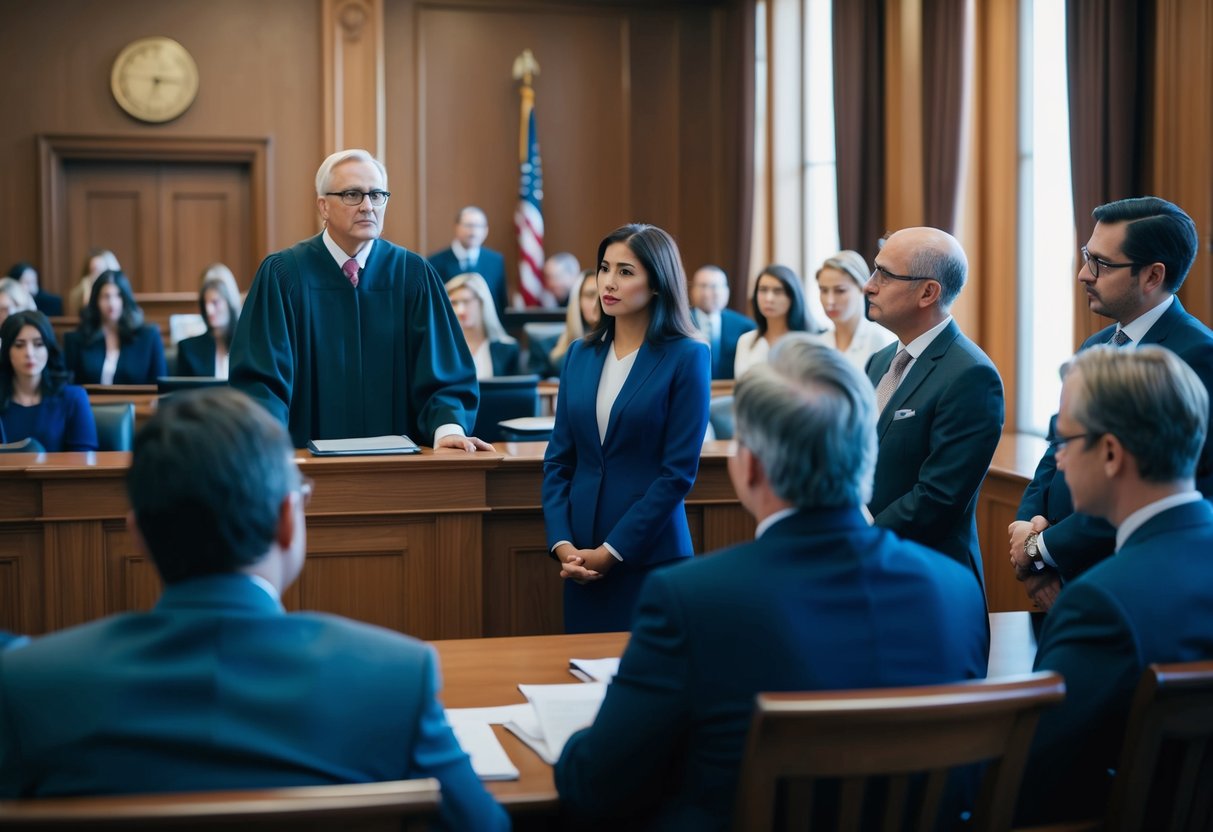Foundations of Evidence in Felony Cases
Evidence plays a crucial role in felony cases, ensuring justice is served based on solid facts. The efficient collection, handling, and presentation of evidence by law enforcement and the accuracy of eyewitness identifications are essential for the integrity of the legal process.
Types of Evidence and Their Significance
Evidence in felony cases can be physical or digital. Physical evidence includes items like weapons, clothing, and fingerprints. Digital evidence comprises audio recordings, video footage, and emails.
Photographs and statements also hold significant value. They help reconstruct the crime scene, establishing a timeline and context. Accurate evidence reduces wrongful convictions and supports fair trials.
Role of Police and Law Enforcement Agencies in Gathering Evidence
Police and other law enforcement agencies are key players in collecting evidence. They secure the crime scene to preserve evidence and prevent contamination. Their role includes interviewing witnesses, gathering physical items, and obtaining video and audio recordings.
Proper documentation of the evidence, such as photographs and reports, ensures it holds up in court. Law enforcement must follow legal protocols to avoid evidence tampering and ensure reliability.
Eyewitness Identification and Its Challenges
Eyewitness identification can significantly impact a felony case. However, it is often unreliable due to factors like memory decay and stress. Research in psychological science shows that high-stress situations can impair a witness’s memory.
Additionally, suggestive questioning or line-up procedures can lead to false identifications. Law enforcement needs to use scientific methods to improve the accuracy of eyewitness testimonies.
Legal Proceedings and Evidence Utilization
Legal proceedings in felony charge cases depend heavily on the proper use and evaluation of evidence. This involves several stages, from the initial charge to the final verdict.
The Process of Charging and Indictments
The charging process begins when law enforcement agencies gather sufficient evidence against a suspect. Once enough evidence is collected, the prosecuting attorney reviews it to decide if charges should be filed.
In the United States, felony charges often involve a grand jury. A grand jury reviews the evidence presented by the prosecutor to determine if there is probable cause to believe a crime was committed. If so, they issue an indictment, officially charging the defendant.
Importance of Discovery and Sharing Evidence
Discovery is a critical part of the justice process. During discovery, both the prosecutor and the defense attorney exchange evidence. This ensures that both sides know what evidence will be presented in court.
This step helps to build fair trials by ensuring each party can prepare their case effectively. Discovery can include witness statements, police reports, and physical evidence. Sharing this information is essential to maintaining transparency and fairness in the justice system.
Jury Considerations and the Weighing of Evidence
During the trial, the jury is responsible for evaluating the evidence. They must consider the credibility of witness testimonies, the reliability of physical evidence, and the arguments presented by both the prosecutor and the defense attorney.
Jurors weigh this evidence to determine if the defendant is guilty beyond a reasonable doubt. This process requires careful attention to detail and an unbiased approach. The jury’s decision plays a crucial role in achieving justice and ensuring a fair outcome for the defendant.
Each stage of legal proceedings relies on evidence to uphold the principles of justice, from the initial charge to the final verdict. Proper utilization and evaluation of evidence are essential for fairness and transparency in felony charge cases.
Outcomes and Aftermath of Felony Trials

In felony trials, outcomes hinge on the role of evidence. After the trial, the aftermath includes the effects of sentencing, plea bargains, and the appeals process.
Sentencing and the Role of Evidence
Sentencing decisions rely heavily on the evidence presented during trial. Police records, exculpatory evidence, and witness testimony can all impact the length and type of sentence. Judges use evidence to determine factors like premeditation or mitigating circumstances.
Discretion is key. For example, in _assault cases, the judge might consider the defendant’s history and the severity of the assault. Relevant information such as the use of _prerecorded buy money in a buy-and-bust operation can also affect sentencing.
Plea Bargaining and Evidence Influence
Plea bargaining often occurs before the trial, influencing case outcomes significantly. Evidence’s strength can determine charge offers. If the evidence is strong, prosecutors are less likely to offer a lenient plea bargain.
Discretion often comes into play here. For instance, in robbery or rape cases, strong evidence like recovered currency or undercover officer testimony can lead to harsher plea deals. Conversely, weak evidence might result in more favorable terms for the defendant.
Appeals and Evidentiary Review
Appeals focus on reviewing the evidence used during the trial to find potential errors. Misconduct or admission of irrelevant information can be grounds for an appeal. In many felony case dispositions, the appellate court examines whether the evidence supported the verdict.
Timing is crucial. Defendants have a limited window to file an appeal. Successful appeals often lead to new trials or reduced sentences, particularly if there was inadequate consideration of exculpatory evidence.
Understanding the impact of evidence in these stages is essential for grasping the full scope of felony trials’ outcomes and aftermath.




